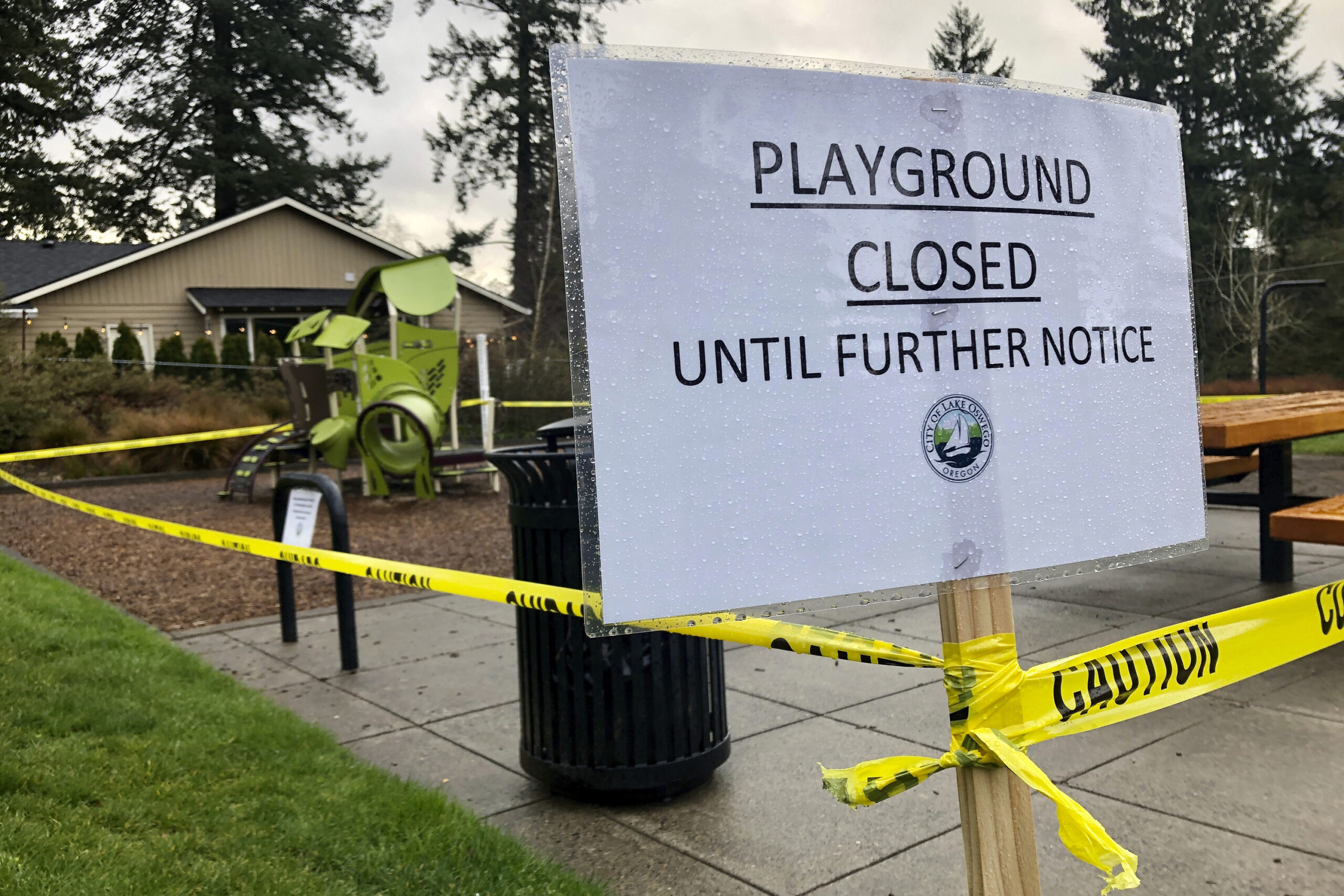 Police caution tape surrounds a playground in Lake Oswego, Ore." width="2560" height="1707" />
Police caution tape surrounds a playground in Lake Oswego, Ore." width="2560" height="1707" /> Police caution tape surrounds a playground in Lake Oswego, Ore." width="2560" height="1707" />
Police caution tape surrounds a playground in Lake Oswego, Ore." width="2560" height="1707" />
Editor’s note: The state Supreme Court struck down Gov. Tony Evers’ stay-at-home order on Wednesday, May 13. The ruling nullifies most of the restrictions imposed by the Evers administration, allowing businesses of all sizes to reopen and reopen without social distancing requirements. However, Wisconsin schools remain closed. After the ruling, numerous local governments took public safety measures into their own hands and have announced they will continue to follow the administration’s stay-at-home order. The below information applies only to those communities, some local governments have different expiration dates for the end of their local stay-at-home orders or have modified the guidelines slightly.
Sign up for WPR’s email newsletter.
" * " indicates required fields
Wisconsin is now under an order from state government to “stay at home” to slow the spread of the new coronavirus. It’s an historic step, one that will restrict peoples’ lives in ways they might have previously not imagined.
Gov. Tony Evers said he’d hoped to avoid an order like this one, but he changed his mind after hearing health care professionals tell him it was the only way to slow the spread of COVID-19.
The original stay-at-home order took effect on March 25 and lasts until Friday, April 24. Last week, Evers ordered state Department of Health Services Secretary Andrea Palm to sign another executive order extending the stay-at-home rules — but included minor changes allowing certain activities to start up again. The new order is set to in place until Tuesday, May 26.
State Republican lawmakers have asked the state Supreme Court to block the extended order, telling justices that Evers’ administration broke the law in its effort to stop the spread of COVID-19.
Under the extended order, all public and private K-12 schools will remain closed for the rest of the school year.
The updated restrictions are spelled out at length in an emergency order. It’s a searchable document, so you can look for specific terms and see how they’re treated.
Here are some frequently asked questions about the order, many of which were sent through WHYsconsin.
The original order took effect at 8 a.m. Wednesday, March 25. Under the new extended timeframe, it will now run until 8 a.m. Tuesday, May 26.
Evers had already ordered all bars and restaurants closed for everything but takeout and delivery. He also ordered schools closed statewide. Those restrictions continue.
But there are several new restrictions:
“Folks do not need special permission to leave their homes,” Evers said.
That’s not to say everything will be the same outside while all this is happening.
“If you have to leave your home, please stay 6 feet away from other people” Evers said.
On April 9, Evers ordered the closure of 40 state parks to prevent the virus from spreading.
“Unfortunately, growing difficulty with ensuring social distancing compliance, dwindling cleaning supplies and mounting trash are some of the challenges faced by our state parks staff,” wrote Evers in a press release.
Yes. The state has stressed that businesses that sell food and prescriptions will remain open.
“No need to run to the grocery store and hoard food,” Evers said at a media briefing in March.
Grocery stores and pharmacies are on the list of “essential businesses” that will remain open.
The list of essential businesses is long. They include:
WHYsconsin received several variations of this question. The short answer is that it’s up to employees and employers to work this out.
The stay-at-home order states that “elderly people and those who are vulnerable as a result of underlying health conditions should take additional precautions.” But those precautions are not required.
Evers was asked about these situations at a media briefing. Here’s Evers’ full answer:
“That’s certainly a conversation with that business owner and that employee. I believe our employers of the state and our employees have good working relationships and that they can figure that out at the business level. I would encourage business owners, however, to understand the seriousness of the situation. And an employee that is uncomfortable and concerned should — you may have to make some accommodations for that employee.”
The extended order includes a few minor changes allowing certain activities to open up again beginning April 24:
People who violate the order could face up to 30 days in jail, a fine of up to $250, or both.
Travel across state lines is still allowed.
No, you don’t need a special permit. You can drive anywhere you were allowed to drive before this order took effect.
“People will not be pulled over and asked,” said Ryan Nilsestuen, Evers’ chief legal counsel. “The order does not require people to have certifications or to have proof that they’re on essential travel.”
That said, Nilsesteun said he hoped most people would “do their part” and stay at home.
Yes, although DHS Secretary Andrea Palm urged people to limit their interactions to five people.
“Not five people at a time, but five total,” Palm said.
This was another repeat question posed to WHYsconsin. The answer is yes.
According to the order, “Travel required by law enforcement or court order, including to transport children pursuant to a custody agreement,” is still allowed.
They are exempt from stay-at-home, meaning that by default, they’ll be expected to go to work. The order exempts “cleaning and janitorial staff,” as well as others “who provide services that are necessary to maintain the safety, sanitation, and essential operation” of “essential” places.
Wisconsin Public Radio, © Copyright 2024, Board of Regents of the University of Wisconsin System and Wisconsin Educational Communications Board.